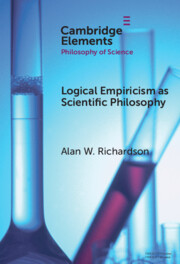Element contents
Logical Empiricism as Scientific Philosophy
Published online by Cambridge University Press: 11 December 2023
Summary
Keywords
- Type
- Element
- Information
- Online ISBN: 9781009471497Publisher: Cambridge University PressPrint publication: 18 January 2024
References
- 11
- Cited by

